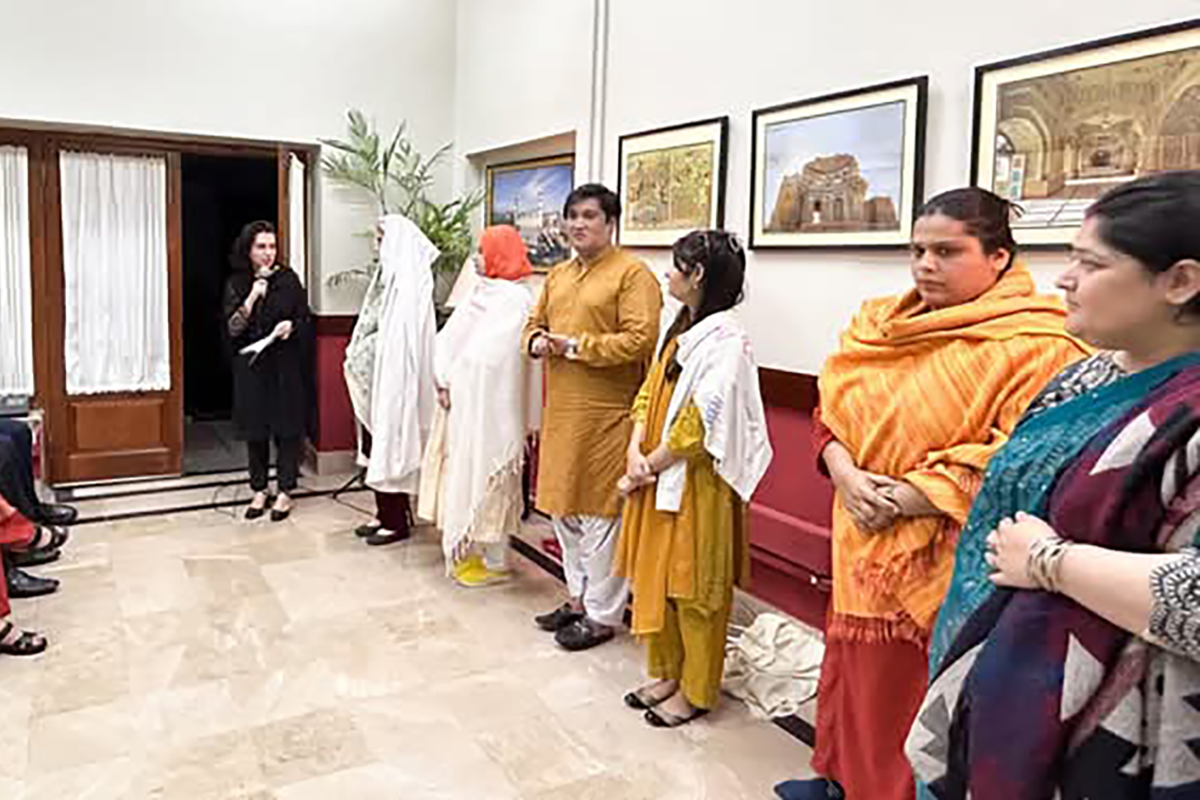The Green Voices of Change: Women Leading Sustainability in Pakistan
Catch up with one of the alumni from UNO’s Next Generation of Female Environmentalists project, Mahrukh Zahir, whose journey bridges the worlds of environmental sustainability, education, and performance art.
- published: 2025/06/04
- contact: Soraya Rahmanzai - International Programs
- phone: 402.554.2293
- email: world@unomaha.edu
- search keywords:
- Pakistan
- Environmental Education
- Women's Empowerment
- Alumni

In the heart of Pakistan’s mountainous Northwest tribal areas of Pakistan, a revolution is quietly taking root on the stage, in classrooms, and in the gardens where young women are planting the seeds of change. At the forefront of this movement stands UNO’s Next Generation of Female Environmentalists project alumna Mrs. Mahrukh Zahir, whose journey bridges the worlds of environmental sustainability, education, and performance art.
Mrs. Zahir is the first women from the Khyber Pakhtunkhwa’s tribal district to hold the positions of assistant professor and principal of a college in her region. She has long championed climate change awareness and social justice. Her work took a profound and artistic turn when she stepped onto the stage as a certified theatre artist in a groundbreaking performance titled The Unheard Scream. Organized by the theatre group Sheezay. The performance was a centerpiece event during the international 16 Days of Activism Against Gender-Based Violence campaign.
This event was held in the city of Peshawar and attended by dignitaries such as U.S. Consulate General Shante Moore, SUSI alumni Dr. Anoosh, students, and professors from the Gender Studies Department. The Unheard Scream delivered a powerful narrative that illuminated the intersection of gender-based violence, violent extremism, and climate injustice in Pakistan. In this emotionally raw and symbolically rich play, Mrs. Zahir portrayed a Christian minority woman grappling with the compound challenges of identity, violence, and environmental degradation, a role that echoed the lived experiences of countless marginalized individuals across the country.
Back in her home district at the Government Girls Degree College in Ekkaghund, Mrs. Zahir took her message further by integrating environmental education into her academic leadership. She spearheaded a Generation Restoration awareness activity, aligning with the global UN Decade on Ecosystem Restoration. The initiative brought together students and educators in a transformative session that combined science, activism, and hands-on ecological restoration.
The event began in the college’s science laboratory with a thought-provoking documentary screening that highlighted the urgent need for global ecological rehabilitation. Energized by the discussion, students moved to the college’s botanical garden where they engaged in soil rehabilitation practices, turning theory into action with their own hands.
“Watching my students take ownership of their environment was a moment of pride,” said Mrs. Zahir. “They weren’t just learning, they were leading. These young women are the future guardians of our land.”
Through her multifaceted work as an educator, activist, and artist, Mrs. Zahir is setting a new precedent for how environmental sustainability is approached in conservative and underserved regions of Pakistan.
In a world often dominated by top-down solutions, the grassroots leadership of women like Mrs. Mahrukh Zahir is reshaping the narrative in Pakistan. With every stage performance, every student she mentors, and every garden she restores, she is cultivating a future that is more just, inclusive, and green.